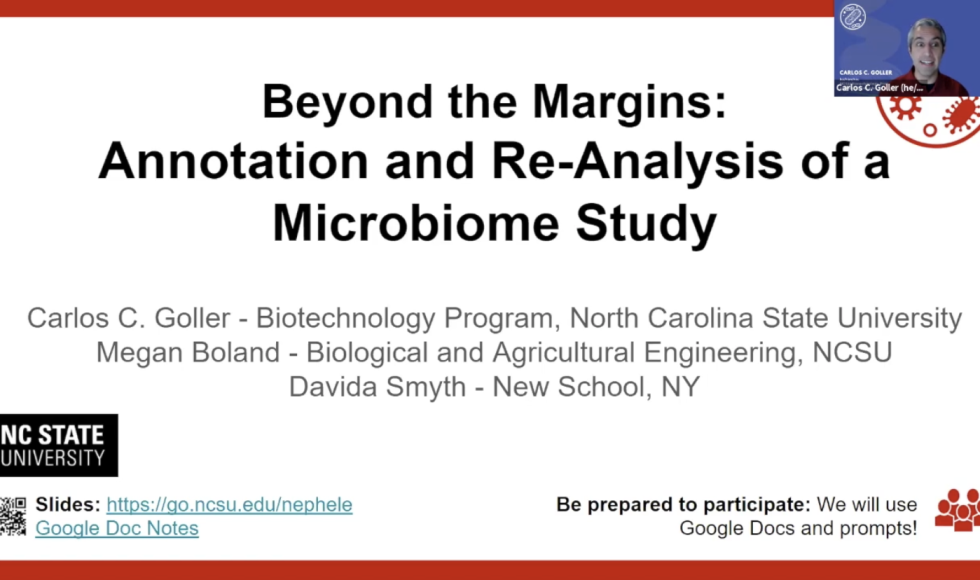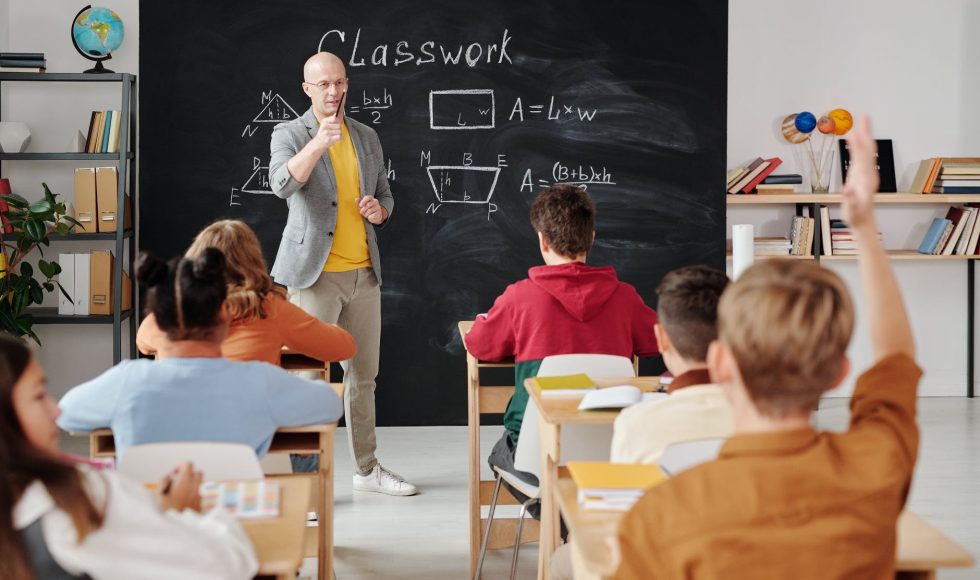Dr. Megan Lupek, Director of the Environmental First Year Program at NC State University, gave a recorded presentation for the 2020 Lilly Conference online about a project I had heard about, but hadn’t learned about the details! Dr. Lupek collaborated with a friend and colleague Dr. Zakiya Leggett to create an assignment to engage students […]
Dr. Erica Kosal is the Director of the Life Sciences First Year program (LSFY) and Associate Teaching Professor at NC State University. It is always great to hear/watch what your departmental colleagues are doing in their classrooms to promote inclusion and the diversity of scientists! Kosal presented a recorded session at the 2020 Lilly Conference […]
I finally did it. I watched our recorded presentation for the 2020 Lily Conference today. I recorded it in November in a single Zoom session with Deb and didn’t look back. I’ve been watching one or two recorded sessions each night and admiring the beautiful slides and thoughtful interactions presenters incorporated. I wondered: how long […]
I’m waiting for the minivan to get serviced and watched the 2020 Lilly Conference by Dr. Sinem Akay-Sullivan from Sam Houston State University. Akay-Sullivan has extensive experience in counseling and was the director of the counseling clinics at Sam Houston. It was interesting to learn about the accreditation system and structure of training for future […]
It has been an interesting week! Classes started, and I have enjoyed the energy that students bring. I observed a Zoom synchronous session, launched our online yeast course, participated in a virtual workshop, and attended a faculty and instructional design virtual break. At the same time, I’m working on scheduling and planning our summer programs […]
Drs. Carolyn Samuel, Angela Guadagno, and Mariela Tovar from the McGill University shared tips and templates for real-time remote learning at the 2020 Lilly Conference. The three work as educational developers at Teaching and Learning Services at McGill and developed strategies instructors could use to enhance engagement in Zoom sessions, including webinars. Their recording was […]
Today was the first day of classes. It is still surreal to start when teaching an online asynchronous course, and I am starting to enjoy the thought process of designing an engaging online introduction to the course. We tried several new things this semester on our Start Here module for the Yeast Metabolic Engineering course. […]
Dr. Laura Hunt Trull from James Madison University shared insights on teaching a grant writing course with significant experiential learning at the 2020 Lilly Conference. Hunt Trull began by introducing (for me, probably review for others familiar with experiential learning) National Society for Experiential Education (NSEE) Principles of Good Practice. There are eight principles: intention, […]
Tonight I watched a Lilly Conference presentation by Dr. Mary Marshall from Cal State Long Beach on incorporating service learning elements into courses. This is a topic I’ve been thinking about but know very little… yet have been hearing great examples in podcasts. Course-based service learning, as mentioned by Dr. Marshall, helps participants increase personal […]
Christine Kenney, Melissa Sreckovick, and Eric Common from the University of Michigan – Flint presented an asynchronous session at the Lilly Conference on easy to implement practices to promote student engagement. Their perspective as teacher educators was evident, and while the activities they described are used in K-12, they can also be beneficial in higher […]











